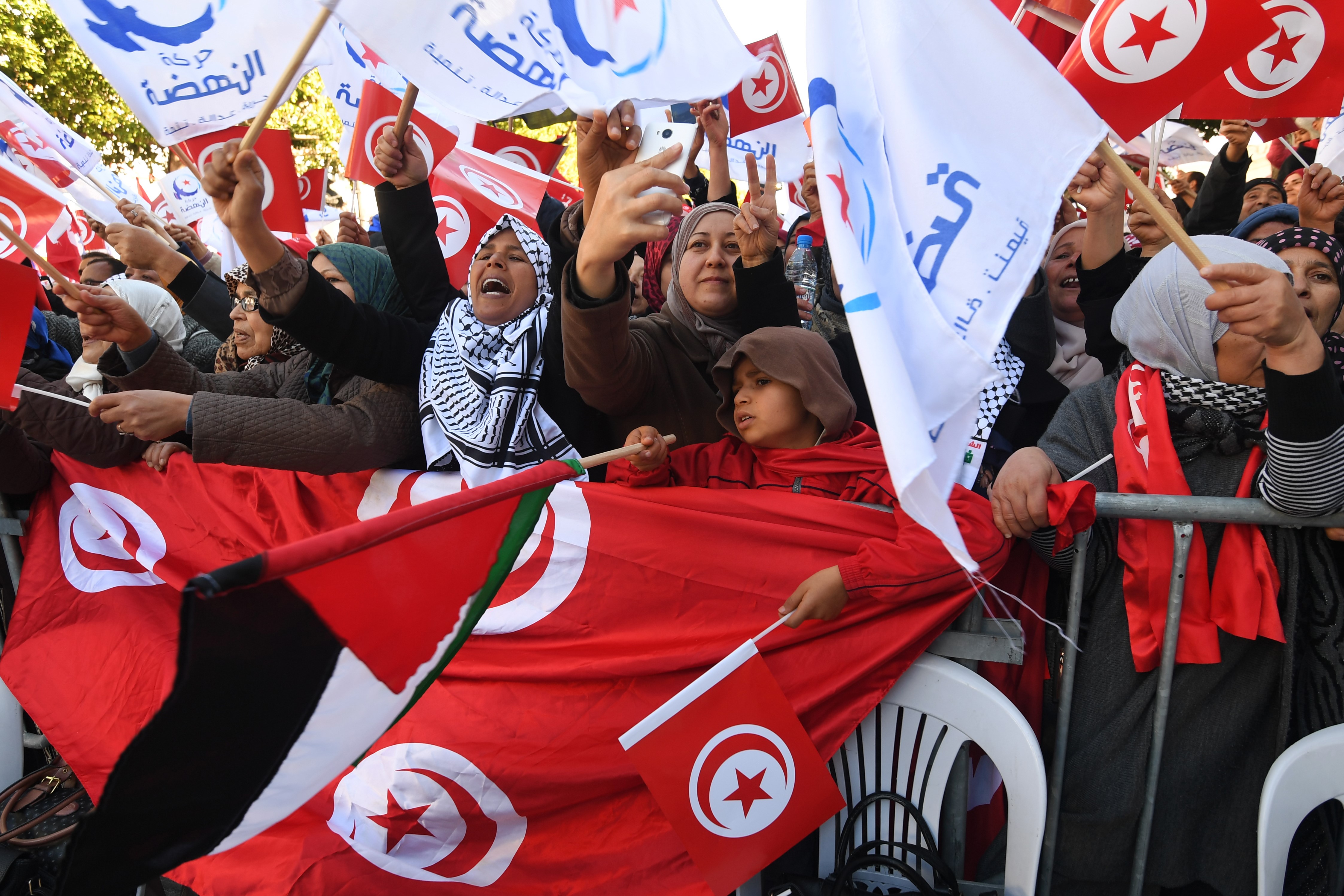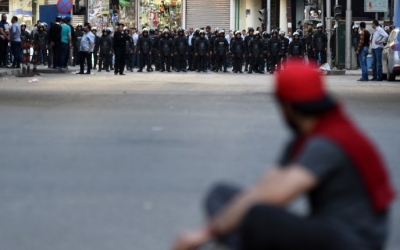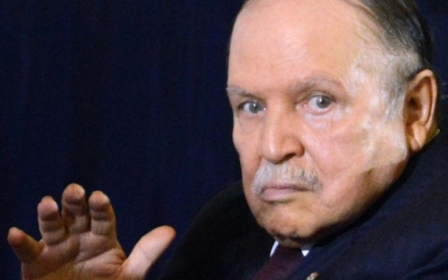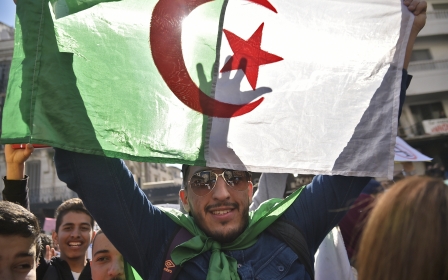Algeria after Bouteflika: Who are the winners and losers?
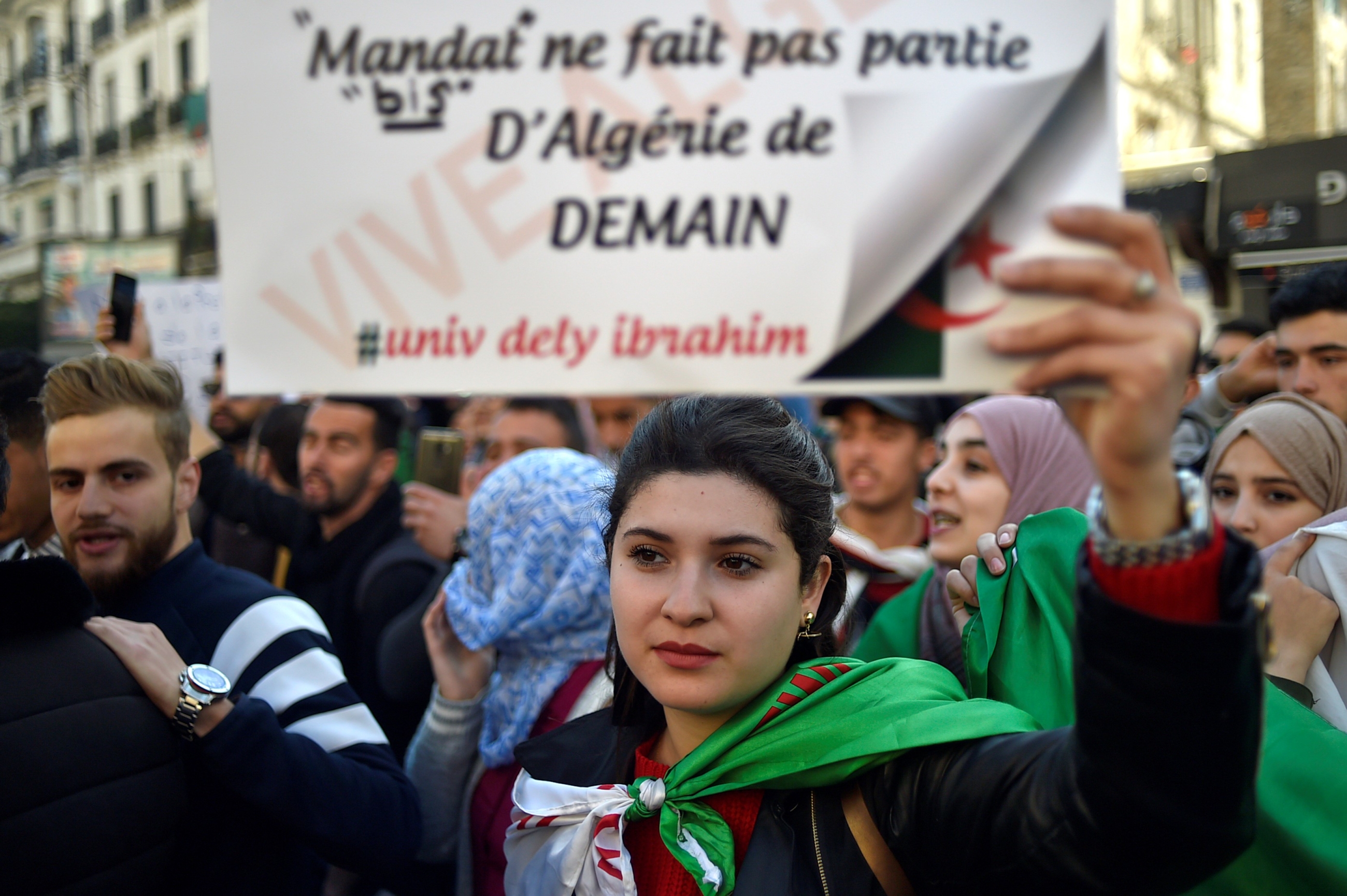
The announcement by Algerian President Abdelaziz Bouteflika that he will not run for a fifth term has elicited a negative reaction from the protesters who have been agitating for weeks to ensure that outcome.
The problem is that elections have been postponed, thus prolonging the president’s tenure and giving those around him more time to prepare the succession they want.
No quick transition
But protesters are wrong in demanding a quick transition, which would also play into the hands of those who control power already. The lesson of the 2011 Arab uprisings is that slow transitions are more likely to succeed and that early elections risk simply re-consolidating the status quo.
The outcome of the uprising in Algeria will be determined not by how soon elections are held, but by how successful the regime’s opponents are in moving from protest in the streets to becoming major participants in the transition.
Stay informed with MEE's newsletters
Sign up to get the latest alerts, insights and analysis, starting with Turkey Unpacked
The lesson of the 2011 Arab uprisings is that slow transitions are more likely to succeed and that early elections risk simply re-consolidating the status quo
That will only happen if protesters remain in the streets to put pressure on the regime, while also organising to become effective political players.
Tunisia offers an example of a slow transition with broad-based participation that led to real change. By contrast, Egypt embarked on a much faster process with narrow participation, and the military, already the mainstay of the Mubarak regime, became even more entrenched.
Tunisia's success factors
Two factors made the Tunisian transition successful: the involvement of a broad array of political and civil society organisations, including long-established ones and new groups that formed during the uprising; and the fact that the transition was slow and went through several phases, giving time to new political forces to consolidate.
After President Zine el-Abidine Ben Ali and his family left for exile in Saudi Arabia, other members of his regime argued that the existing constitution outlined a succession process should a president die or became incapacitated and that the process should be followed.
But protesters rejected the idea and stayed in the streets. At the same time they started organising a number of committees advocating political reforms, some radical, some moderate.
These groups of protesters eventually coalesced in an organisation called the High Authority for the Realisation of the Objectives of the Revolution, Political Reform, and Democratic Transition, a catch-all name that denoted the conflicting goals of various groups.
The authority was enlarged several times in order to accommodate new groups that were emerging. As a result, it was a large and divided organisation, but it succeeded in adopting a set of interim rules to replace the suspended constitution and formed an Independent Electoral Commission to supervise elections for a constituent assembly.
Protest must continue, maintaining pressure on the regime and preventing it to return to business as usual
Elections were held on 23 October 2011, and the High Authority was disbanded, having done its job.
The constitution was finally adopted in January 2014 and the first parliamentary and presidential elections were held in late 2014, almost four years after the beginning of the uprising.
The process was far from smooth. With dissension among the members of the constituent assembly stalling the adoption of the new constitution, another ad hoc organisation, the so-called Quartet consisting of the confederation of Tunisian trade unions (UGTT), the employers’ organisation (UTICA), the Tunisian human right league, and the lawyers’ association imposed on the squabbling politicians a new time table and the formation of a government of technocrats.
As in 2011, expediency ruled the day and the will to succeed led all parties to accept the authority of the self-proclaimed quartet.
Make the process work
These are the lessons of the Tunisian transition: broad participation - not just by unorganised crowds in the street but by organised associations that were well embedded in the society; the will to make the process work; and recourse to expediency at times when institutions either would have prevented change (as in 2011) or were too weak (as in late 2013 when the constituent assembly was failing).
Algeria could have a similar transition but, for that to happen, several developments need to take place. The first is that protest continues, maintaining pressure on the regime and preventing it to return to business as usual.
The second is that organised groups arise from among the protesters and play a role in devising and steering interim arrangements: the participation by judges and lawyers, not as individuals but as categories, is a very encouraging sign, but it is crucial that all types of organisations and professional groups become involved.
The government has floated the idea of organising a national conference, but it is also showing that it intends to handpick participants.
Protesters should embrace the idea of a national conference but agitate for the broadest possible participation by all sort of groups, not just the narrow range of political parties and organisations that have dominated Algerian politics for decades.
And it is the national conference that needs to devise a way forward, not the government. Only under those conditions will Algerians be able to experience a meaningful transition.
The regime will certainly resist such a broad process and that is why pressure from the streets, but even more importantly from organised groups, must continue, lest Algerians, like Egyptians, discover that they won a pyrrhic victory by removing a president but leaving the rest of the regime intact.
The views expressed in this article belong to the author and do not necessarily reflect the editorial policy of Middle East Eye.
Middle East Eye delivers independent and unrivalled coverage and analysis of the Middle East, North Africa and beyond. To learn more about republishing this content and the associated fees, please fill out this form. More about MEE can be found here.



